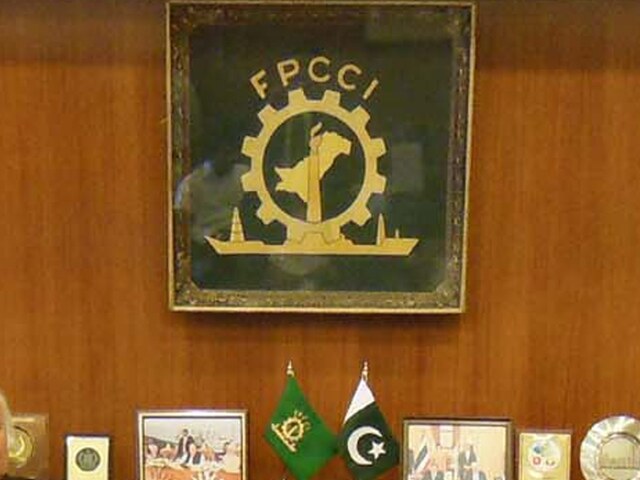KARACHI: In a landmark show of unity, the Karachi Chamber of Commerce & Industry (KCCI) and the Federation of Pakistan Chambers of Commerce & Industry (FPCCI) have reaffirmed their joint resolve to work together for the revival and stability of Pakistan’s economy.
At a high-level meeting held at KCCI on Friday attended by leading representatives of both chambers on Friday, President KCCI Rehan Hanif and Senior Vice President FPCCI Saquib Fayyaz Magoon emphasized the urgent need for cohesive action, collective advocacy, and institutional cooperation among the country’s trade bodies to address common economic challenges.
Senior Vice President KCCI Muhammad Raza, Vice President KCCI Muhammad Arif Lakhani, Former Vice President KCCI Faisal Khalil, Vice President FPCCI Aman Paracha, Patron Hyderabad Chamber Adeel Siddiqui, Former Vice President FPCCI Shabbir Mansha and others also attended the meeting.
President KCCI Rehan Hanif, while appreciating Saquib Fayyaz Magoon for his active engagement and strong voice in addressing numerous business issues, acknowledged his efforts toward providing meaningful relief to the business community. He noted that the business community of not only Karachi but also the entire country faces common challenges that must be resolved collectively.
“It is essential that not just KCCI and FPCCI, but all chambers of commerce, join hands to raise a united and stronger voice so that the issues confronting the business community attract the attention of policymakers and are resolved in line with our shared aspirations”, he added.
He advised FPCCI to collaborate closely with KCCI in addressing the long-pending issue of Port Qasim’s industrial land, which has remained unresolved for over two decades. Highlighting other pressing matters, he referred to the impracticalities surrounding the implementation of e-invoicing and e-bilty systems, as well as the serious implications of Section 7E of the Income Tax Ordinance 2001, which has adversely impacted the real estate sector and contributed to capital flight.
“Section 7E, introduced through the Finance Act 2022, effectively imposes1 percent tax on the fair-market value of immovable properties, treating them as deemed income,” he added.
“If this provision is discouraging investment and causing the outflow of capital, the government must objectively assess whether its removal would be more beneficial for the economy. If so, it should be withdrawn without delay.”
Rehan Hanif further pointed out that Fata/Pata tax exemptions have created an uneven playing field, resulting in two parallel taxation regimes, an anomaly that exists nowhere else in the world and must be addressed immediately.
“When both KCCI and FPCCI are demanding an electricity tariff of 9 cents per kWh, and the same demand is being echoed by other chambers, why not raise this demand jointly from one strong, unified platform?,” he questioned.
Commenting on the export situation, he expressed concern that Pakistan’s exports have stagnated at around US USD 32 billion, while remittances exceed USD 38 billion, underscoring the urgent need to boost export competitiveness.
“Major economic issues must be jointly raised and pursued through collective efforts,” he emphasized.
Senior Vice President FPCCI, Saquib Fayyaz Magoon, in his remarks, underscored that the strong turnout at the meeting signals the business community’s eagerness for greater collaboration between FPCCI and KCCI. “Today’s gathering is not a mere routine meeting, it marks a historic moment of building enduring cooperation between FPCCI and KCCI,” he stated. He emphasized that if the business community wants its voices heard and aims to strengthen Pakistan’s economy, they will have to act in unity.
“Without working together relevant issues will remain unresolved,” he added.
He reiterated that moving forward, when the federal budget process begins, it must not proceed without prior formal consultation with the business community.
“The FPCCI, KCCI, Lahore Chamber or any other Chamber must take part in negotiations or meetings only when these are held before finalizing the budget document,” he stressed and called on the chambers from Karachi, Lahore and all other regions to align, devise a joint action-plan, and ensure that no significant government decision is made without the business community being on board.
Turning to specific policy concerns, he noted that FPCCI and KCCI share identical views on the implementation of e-invoicing and e-bilty systems, and on the impact of Section 7E and the Fata/Pata regime. “On these fronts, e-invoicing, e-bilty, Section 7E, Fata/Pata, we are on the same page. What remains is to raise a single unified voice to tackle them all,” he emphasized.
Addressing the Dangerous Petroleum Licence (DPL) issue, he explained that the problem pertains to industrial raw material imports being asked to fall under the licensing regime of the Department of Explosives.
He described this as “highly incorrect,” since many of these materials are ordinary industrial inputs rather than petroleum-hazardous goods.
He affirmed that the FPCCI and its allied bodies have succeeded in convincing the relevant authorities and expect this issue to be resolved within one month.
On the matter of indenting commission, Saquib Magoon pointed out that while the Sindh government had initially applied a sales tax rate of 15 % on indenting commission services, the business community succeeded in getting it reduced to 3 percent.
He raised concern that the effective rate is now reportedly being revised upward to 8 %. “Such an increase would discourage relevant businessmen from sending funds from abroad to Pakistan and will adversely affect foreign-exchange inflows,” he warned while urging the business community to fight jointly on this front as well.
Copyright Business Recorder, 2025


